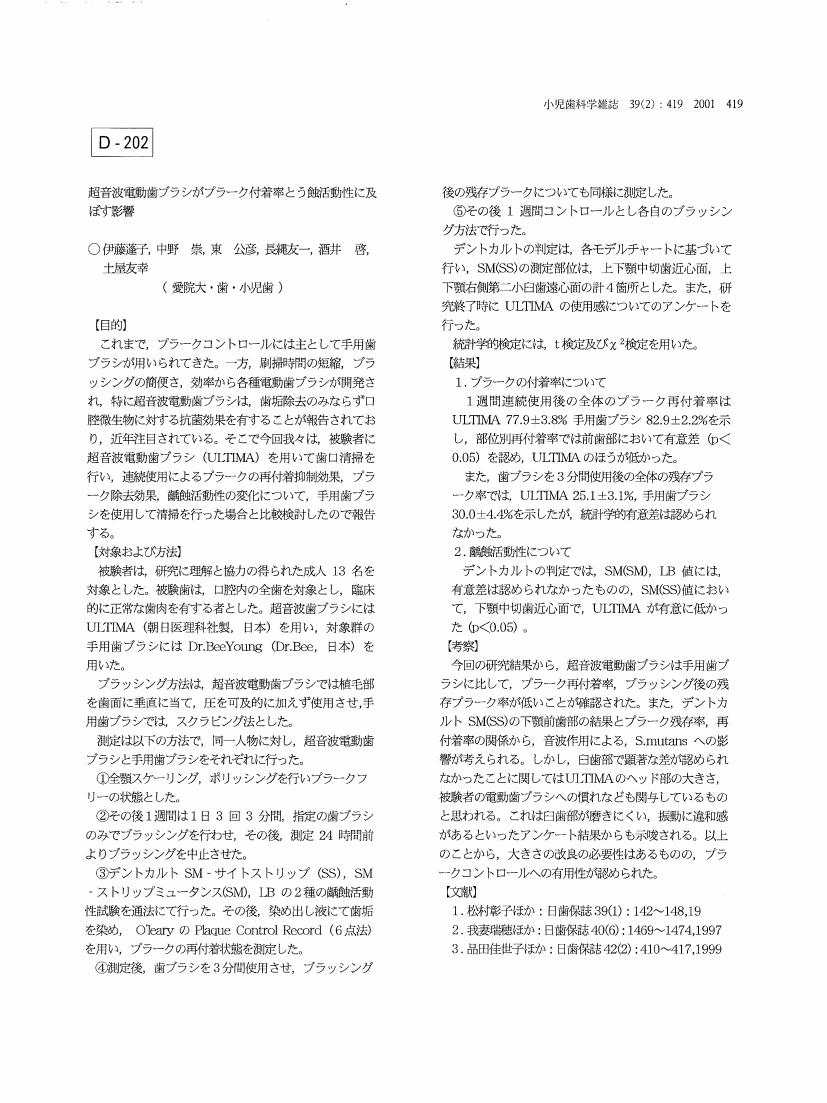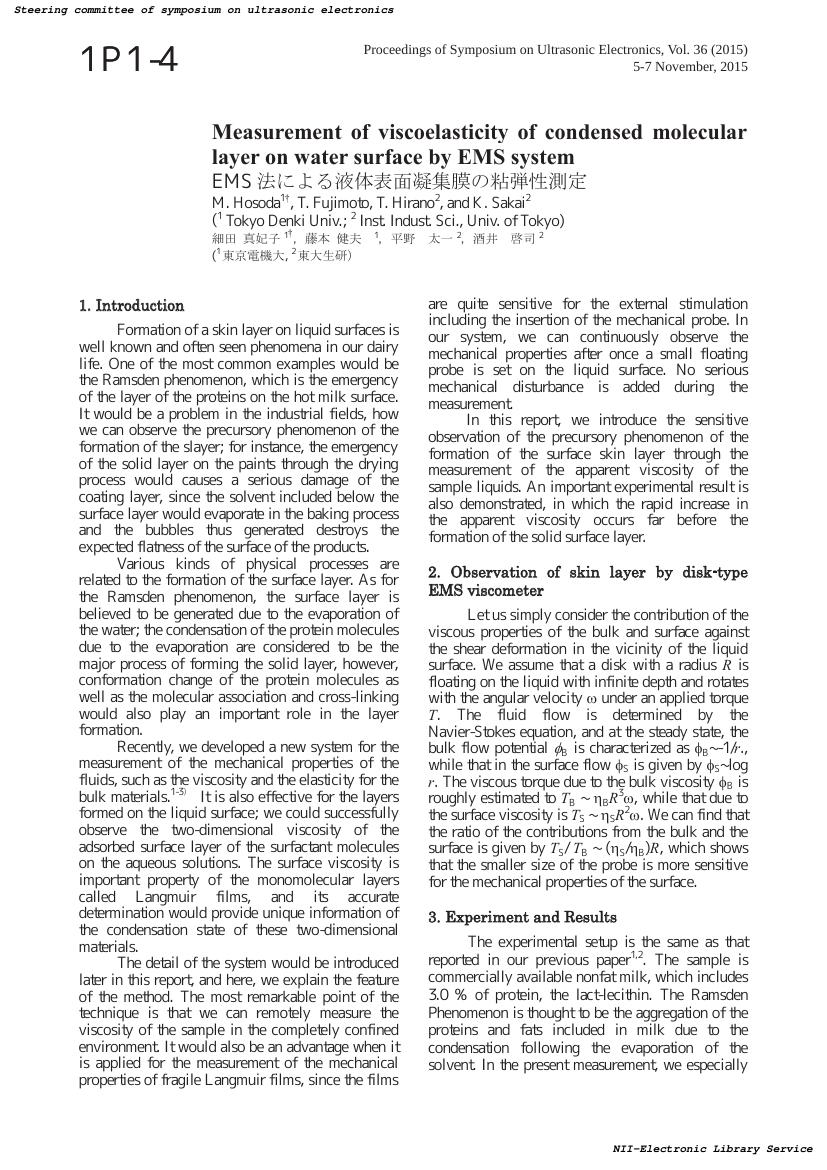13 0 0 0 OA 戦後のイラクで何が対立しているのか
- 著者
- 酒井 啓子
- 出版者
- 一般財団法人 日本国際政治学会
- 雑誌
- 国際政治 (ISSN:04542215)
- 巻号頁・発行日
- vol.2017, no.189, pp.189_17-189_32, 2017-10-23 (Released:2018-12-19)
- 参考文献数
- 71
In order to analyse contemporary global crises, it is necessary for scholars of International Relations and Area Studies to overcome two limitations: Area Studies’ tendency to focus only on the substance of certain states or areas and the state-centric understanding of International Relations. Contemporary conflicts and faultlines that intermingle and interlock from the local level to the global level cannot be explained simply by unilineal causal relations among the existing actors but rather are complicated by their reciprocal interaction. In order to grasp the widespread networks of co-relationship among various actors, a new analytical framework should be introduced which frames current affairs as the product of a web of interconnections, and as a result of the transformation of those relationships, rather than on the actors’ essential qualities.As a case study of the above new framework, this paper analyses sectarian “faultlines” in post-war Iraq. Since 2003, violent clashes have occurred in Iraq, which Western media and policy-makers considered to be “sectarian conflicts.” As most of the Western policy-makers assume an essentialist understanding of sectarian relations in Iraq, they consider the sectarian factor as an explanatory and independent valuable. However, in order to propose an alternative approach to the perception of sectarian groups as cohesive actors, this paper avoids substantial “sectarian factors” for explanations of conflict in post-2003 Iraq, and focuses instead on the transformation of the various kinds of relationships that led to political and social strife. It sees how sectarian factors emerge as a result of mobilisation of rhetoric and legitimisation of fighting parties.This paper analyses media narratives in Iraq and surrounding states. It discloses that pro-government Iraqi media and Iranian media consider IS as inhuman terrorists while Arab and Turkish media as a reflection of anti-government ideology and sentiments in Iraqi society. In the regional power struggle between Iran, Saudi Arabia and Turkey, each media, domestic or regional, focuses on the victimhood of their side, and a sectarian narrative further legitimatises the appeal of the victims for their rights. For each side it is not “us” but “others” that discriminate us and exclude us from the Iraqi nation or from the religion of Islam; each side uses sectarian terms to demonise the others, with each insisting that it is “us” who pursue the unity of the community. This paper concludes that the conflicts in post-war Iraq are caused by the competition among the fighting actors over the right to claim the injustice of marginalisation, which often relies on sectarian legitimisation.
- 著者
- 相川 実穂 仙海 かおり 安田 智亜紀 酒井 啓江 小川 祐樹 梅原 英一
- 出版者
- FIT(電子情報通信学会・情報処理学会)運営委員会
- 雑誌
- 情報科学技術フォーラム講演論文集
- 巻号頁・発行日
- vol.14, no.4, pp.85-92, 2015-08-24
4 0 0 0 公論と暴力-革命の比較研究
この研究は近代に起きた6つの革命を公論と暴力の関係に着目しつつ比較する。取り上げるのはイギリス・フランス・日本・中国・ロシア・中東の革命で、日本と外国の専門家が互いに緊密な議論を行い、最後は英文論文集を刊行する。革命では公論と暴力が同時に誕生するが、暴力が蔓延する条件を探るのが第1の問題である。また、革命の終わりには暴力が排除されるが、その後、公論が維持されて自由な体制が生まれるのか、公論まで排除されて専制体制が生ずるのか、その分岐要因の解明が第2の課題である。さらに、諸革命がどんな連鎖関係に立っていたのか、アジアなど後発革命の側から先行革命の利用の様子を明らかにする。
3 0 0 0 OA イラク政治におけるジェンダー-国家、草命、イスラーム-
- 著者
- 酒井 啓子
- 出版者
- JAPAN ASSOCIATION OF INTERNATIONAL RELATIONS
- 雑誌
- 国際政治 (ISSN:04542215)
- 巻号頁・発行日
- vol.2007, no.149, pp.30-45,L7, 2007-11-28 (Released:2010-09-01)
- 参考文献数
- 39
- 被引用文献数
- 1
Women in Iraq have been always at the “periphery” of the multi-layered centre/periphery structures. They were located at the periphery of the traditional Muslim/Arab society in a Western/modernist sense. Iraq itself, on the other hand, is located at the periphery of the colonial and global economic system. Consequently, Iraqi women have found themselves in a double peripheral position, both at the international as well as the domestic level.The leftist political elites who became dominant in Iraq after 1958 understood the liberation of women as evidence of the progressiveness of modern society, as they opposed both feudalism and Western colonialism. The state under the Ba'thist regime in the 1970s controlled women's organizations and included them in the system of revolutionary mobilization. State control was strengthened during the war period in the 1980s as a means to mobilise women into the labour force.The leftist regimes in Iraq pursued this secular and de-Islamisation policy until after the Gulf war, but in the 1990s Saddam Hussein introduced a re-tribalisation and re-Islamisation policy as a means to compensate for the state's lack of ability to govern local society. This revival of traditional Muslim and tribal social systems drove women again to the periphery.The US invasion of Iraq and the removal of Saddam's regime has led to a change in the previous central/peripheral relationship. Iraq was placed at the periphery of the world political system under US/UK control. At the same time, the new Iraq regime, established following the general election in 2005, is led by Islamist political parties, which were in a peripheral/outlaw position in Iraq before 2003. Under this new situation, women have been divided into three categories. First, there is a group who utilise the US/Western support to “liberate/democratise” Iraq and demand the introduction of a Western legal and social system to protect women's rights. A second group accepts the newly introduced Western electoral system but not the Western-type equal political rights for women. The third are women members of Islamist political parties, who act as a part of the revolutionary forces pursuing the establishment of an Islamic state.Under both the leftist and Islamist regimes, revolutionaries have consistently pursued their own goal of “liberating” their nation from the rule of the “centre” of world politics, which is led by the Western system; sometimes they play up the nominal status of women to the state elites, but in other cases pursue their own aims at the expense of women's rights.
3 0 0 0 OA 中東における反米意識の歴史的展開
- 著者
- 酒井 啓子
- 出版者
- 東京大学大学院総合文化研究科附属アメリカ太平洋地域研究センター
- 雑誌
- アメリカ太平洋研究 (ISSN:13462989)
- 巻号頁・発行日
- vol.8, pp.28-35, 2008-03
特集1 : 反米 : その歴史と構造
2 0 0 0 OA 高校地学教科書に見られる潮汐現象の説明とその問題点
- 著者
- 池田 幸夫 酒井 啓雄 古川 博
- 出版者
- 一般社団法人 日本科学教育学会
- 雑誌
- 日本科学教育学会研究会研究報告 (ISSN:18824684)
- 巻号頁・発行日
- vol.23, no.4, pp.17-18, 2007 (Released:2018-04-07)
潮汐現象は高校地学で学習する身近な自然現象の一つである。高校地学の教科書では、潮汐は次のように説明されている。①潮汐は主に月の引力と地球の公転による遠心力の合力によって起こる、②月に面した側とその反対側で満潮となる。③満月と新月の時に干満差が最大になる(大潮)。④満潮と干潮は一日にほぼ2回起こる。このうち満潮と干潮の時刻については、問題があるのである。満月の日に月が南中するのは真夜中の 0 時である。したがって、①が正しいならば、大潮の日の満潮は真夜中と真昼に起こらなければならない。ところが、実際には朝と夕方に満潮となり説明と矛盾している。この矛盾は、潮汐の波の速度(約 200 ㎞/s)が地表面に対する月の移動速度(約 470 ㎞/s)に比べてはるかに遅く、月の動きについて行けないことが原因である。本研究では、潮汐を単振動モデルで表し、月の引力の変動に対する海水の運動を力学的に考察して、月の運動に対して潮汐波の位相が 180 °のときに周期的に安定した運動になると考えれば、この矛盾を説明できることが明らかになった。
2 0 0 0 高校地学教科書に見られる潮汐現象の説明とその問題点
- 著者
- 池田 幸夫 酒井 啓雄 古川 博
- 出版者
- 一般社団法人 日本科学教育学会
- 雑誌
- 科教研報
- 巻号頁・発行日
- vol.23, no.4, pp.17-18, 2007
潮汐現象は高校地学で学習する身近な自然現象の一つである。高校地学の教科書では、潮汐は次のように説明されている。①潮汐は主に月の引力と地球の公転による遠心力の合力によって起こる、②月に面した側とその反対側で満潮となる。③満月と新月の時に干満差が最大になる(大潮)。④満潮と干潮は一日にほぼ2回起こる。このうち満潮と干潮の時刻については、問題があるのである。満月の日に月が南中するのは真夜中の 0 時である。したがって、①が正しいならば、大潮の日の満潮は真夜中と真昼に起こらなければならない。ところが、実際には朝と夕方に満潮となり説明と矛盾している。この矛盾は、潮汐の波の速度(約 200 ㎞/s)が地表面に対する月の移動速度(約 470 ㎞/s)に比べてはるかに遅く、月の動きについて行けないことが原因である。本研究では、潮汐を単振動モデルで表し、月の引力の変動に対する海水の運動を力学的に考察して、月の運動に対して潮汐波の位相が 180 °のときに周期的に安定した運動になると考えれば、この矛盾を説明できることが明らかになった。
- 著者
- 酒井 啓子 松永 泰行 石戸 光 五十嵐 誠一 末近 浩太 山尾 大 高垣 美智子 落合 雄彦 鈴木 絢女 帯谷 知可
- 出版者
- 千葉大学
- 雑誌
- 新学術領域研究(研究領域提案型)
- 巻号頁・発行日
- 2016-06-30
総括班はグローバル関係学を新学術領域として確立することを目的とし、分担者や公募研究者、領域外の若手研究者にグローバル関係学の視座を理解しその分析枠組みをもとに研究を展開するよう推進することに力点をおいて活動を行っている。H29年度には、領域代表の酒井、計画研究A01代表の松永、計画研究B02分担者の久保が全体研究会や国内の研究シンポジウムなどでそれぞれがグローバル関係学の試論を報告、各界からコメントを受けて学理のブラッシュアップに努めた。そこでは1)グローバル関係学が、関係/関係性に焦点を絞り、その関係/関係性の静態的・固定的特徴を見るのではなく、なんらかの出来事や変化、表出する現象をとりあげ、そこで交錯するさまざまな関係性を分析すること、2)グローバル関係学がとらえる関係が単なる主体と主体の間の単線的/一方方向的関係ではなく、さまざまな側面で複合的・複層的な関係性を分析すること、を共通合意とすることが確認された。それを踏まえて9月以降、領域内の分担者に対して、いかなる出来事を観察対象とするか、主体間の単線的ではない関係性をいかに解明するか、そしていかなる分析手法を用いてそれを行うかを課題として、個別の研究を進めるよう促した。多様な関係性が交錯する出来事にはさまざまな事例が考えられるが、その一つに難民問題がある。計画研究ごとに閉じられた研究ではなく領域として横断的研究を推進するため、計画研究横断プロジェクトとして移民難民研究プロジェクトを立ち上げた。また、総括班主導で確立したグローバル関係学の学理を国際的にも発信していくため、国際活動支援班と協働しながら、海外での国際会議を積極的に実施している。H29年度はシンガポール国立大学中東研究所と共催で同大学にて国際シンポGlobal Refugee Crisesを実施、グローバル関係学の骨子を提示して海外の研究者への発信とした。
2 0 0 0 OA 超音波電動歯ブラシがプラーク付着率とう蝕活動性に及ぼす影響
- 著者
- 伊藤 蓬子 中野 崇 東 公彦 長縄 友一 酒井 啓 土屋 友幸
- 出版者
- 一般財団法人 日本小児歯科学会
- 雑誌
- 小児歯科学雑誌 (ISSN:05831199)
- 巻号頁・発行日
- vol.39, no.2, pp.419-419, 2001-04-01 (Released:2013-01-18)
- 参考文献数
- 3
2 0 0 0 OA グローバル化と暴力に関する政治学的研究
- 著者
- 大串 和雄 月村 太郎 本名 純 SHANI Giorgiandr 狐崎 知己 千葉 眞 武内 進一 元田 結花 SHANI Giorgiandrea 酒井 啓子 竹中 千春
- 出版者
- 東京大学
- 雑誌
- 基盤研究(A)
- 巻号頁・発行日
- 2011-04-01
本研究は、現代世界の武力紛争と犯罪について、グローバル化、アイデンティティ、デモクラシーという3つのテーマを軸にしてその実態を解明するとともに、実態に即した平和政策を検討した。武力紛争はアイデンティティとの絡みを中心に研究し、犯罪については東南アジアの人身取引をめぐる取り組みと、中央アメリカの暴力的犯罪を中心に取り上げた。平和政策では平和構築概念の軌跡、「多極共存型パワー・シェアリング」、移行期正義における加害者処罰の是非を中心に検討し、それぞれについて新たな知見を生み出した。
2 0 0 0 OA ガーンディーにおける生命・生存・スワラージー非暴力思想の世界史的水脈
本研究は、近年再評価されつつあるガーンディーに関する文献購読、史資料調査、および現地調査(インドのアフメダーバード、ワルダー、イギリスの大英博物館、南アフリカのダーバンなど)を行い、ガーンディーの歴史的役割の重要な一端(非暴力的な紛争解決)の詳細とその影響を明らかにすることが出来た。具体的には、彼は、当時の南アフリカに存在した紛争(人種差別)を非暴力的に解決する「方法としての非暴力」をこの時代に編み出し、それによって有色人種(インド人 & 中国人)に対する白人の人種差別の一角を崩すことに成功したのである。のみならず、この方法は、北欧、中東(イラン)の紛争解決、米国の人種差別反対運動にも影響を与えた。
- 著者
- 酒井 啓亘
- 出版者
- 神戸大学
- 雑誌
- 国際協力論集 (ISSN:09198636)
- 巻号頁・発行日
- vol.12, no.3, pp.29-64, 2005-03
1 0 0 0 OA 中東における安全保障観の変質 ――脱国家主体と国家主体の相互作用から論じる
- 著者
- 酒井 啓子
- 出版者
- 国際安全保障学会
- 雑誌
- 国際安全保障 (ISSN:13467573)
- 巻号頁・発行日
- vol.45, no.2, pp.35-54, 2017-09-30 (Released:2022-04-01)
1 0 0 0 OA 編集後記
- 著者
- 飯田 敬輔 大島 美穂 大矢根 聡 酒井 啓子 中西 寛
- 出版者
- 一般財団法人 日本国際政治学会
- 雑誌
- 国際政治 (ISSN:04542215)
- 巻号頁・発行日
- vol.2020, no.200, pp.200_175, 2020-03-31 (Released:2020-04-16)
1 0 0 0 OA グローバル秩序の溶解と新しい危機を超えて:関係性中心の融合型人文社会科学の確立
- 著者
- 酒井 啓子
- 雑誌
- 新学術領域研究(研究領域提案型)
- 巻号頁・発行日
- 2016-06-30
- 著者
- 酒井 啓充 串田 篤彦 奈良部 孝
- 出版者
- The Japanese Nematological Society
- 雑誌
- 日本線虫学会誌 (ISSN:09196765)
- 巻号頁・発行日
- vol.49, no.2, pp.19-27, 2019-12-20 (Released:2020-06-16)
- 参考文献数
- 47
- 被引用文献数
- 1 4
ジャガイモシストセンチュウおよびジャガイモシロシストセンチュウの同定診断において、マルチプレックスPCR検定は重要な診断技術の一つである。従来法では、検定結果が陰性の場合にPCRの失敗か非標的種か不明であった。一方、PCR診断における重大な問題としてキャリーオーバー汚染が挙げられる。本研究では、dUTP/UNG系によるキャリーオーバー防止を取り入れた2ステップのマルチプレックスPCR 診断法を考案し、PCR診断技術の信頼性向上と迅速化を図った。併せて、DNA抽出法を簡素化した。本PCR法の結果、ジャガイモシストセンチュウで150 bp、ジャガイモシロシストセンチュウで287 bp、非標的種でおよそ450 bpの産物を生じ、非特異反応は見られなかった。幼虫またはシストの2種混合サンプルを用いた場合、10:1の比率でも両種を検出した。本手法のPCR反応時間は約1 時間で、従来法よりも迅速である。
1 0 0 0 OA 1P1-4 EMS法による液体表面凝集膜の粘弾性測定
- 著者
- 細田 真妃子 藤本 健夫 平野 太一 酒井 啓司
- 出版者
- Institute for Ultrasonic Elecronics
- 雑誌
- 超音波エレクトロニクスの基礎と応用に関するシンポジウム講演論文集 (ISSN:13488236)
- 巻号頁・発行日
- vol.36, pp._1P1-4-1_-_1P1-4-2_, 2015-11-05 (Released:2018-11-15)
1 0 0 0 ゲートバスドライバ付MOSアレイを用いた液晶テレビ表示パネル
- 著者
- 笠原 幸一 柳沢 俊夫 酒井 啓次 安達 元一 井上 勝之 堤 正 堀 浩雄
- 出版者
- 一般社団法人 映像情報メディア学会
- 雑誌
- テレビジョン学会技術報告 (ISSN:03864227)
- 巻号頁・発行日
- vol.4, no.32, pp.19-24, 1981
1 0 0 0 許淑娟著『領域権原論 : 領域支配の実効性と正当性』
- 著者
- 酒井 啓亘
- 出版者
- 国際法学会 ; 1912-
- 雑誌
- 国際法外交雑誌 (ISSN:00232866)
- 巻号頁・発行日
- vol.112, no.3, pp.572-577, 2013-11
1 0 0 0 IR イラクにおけるトルコマン民族--民族性に基づく政党化か,政党の脱民族化か
- 著者
- 酒井 啓子
- 出版者
- 日本貿易振興機構アジア経済研究所
- 雑誌
- アジア経済 (ISSN:00022942)
- 巻号頁・発行日
- vol.48, no.5, pp.21-48, 2007-05



